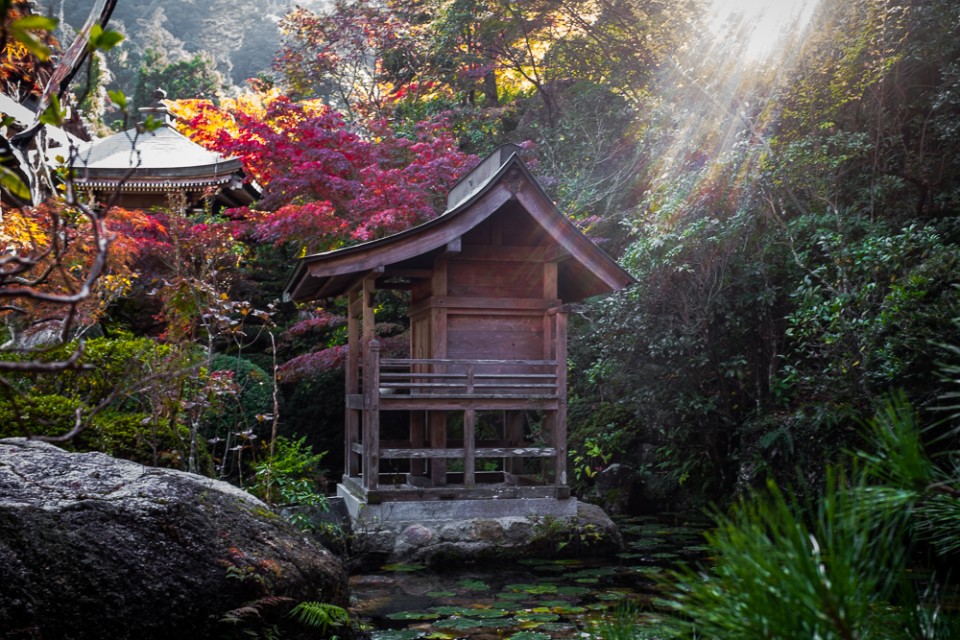When To Listen To Criticism
We all experience criticism. Sometimes it can be helpful. Often it isn’t. When should we listen to criticism?

Yesterday morning I was riding the Shinkansen (Bullet Train) back to Tokyo after a few wonderful days in Hiroshima. I packed light for the trip and was using my FujiFilm x100s for most of photos. I was looking forward to getting home and processing the images, especially from around the iconic A-Bomb sight and the picturesue island of Itsukushima
Trains have always been my favourite mode of transport and the Shinkansen Green Class, with comfortable reserved seats in whisper quiet cabins, only reinforces that feeling. I took the opportunity to catch up on a few days worth of blog feeds, when I stumbled on this article about the value, or potential lack thereof, we find in photographic image critiques.
An Equation For Measuring Criticism
Image critiques are commonplace in photography, from formal educational settings, to more casual online environments. They are really a subset of portfolio reviews, which are a staple of all visual art forms, where the artist submits their work for evaluation, often by an esteemed professional or educator. Of course, other arts have similar processes, from manuscript evaluations for authors, to listening parties for musicians (which used to be about hearing tracks before they were fully mixed, though these days might also refer to launch events instead).
All this sits within a bigger set of comments we call criticism. The world is full of critics, so every time we share an image, in person or online, we are prone to hearing someone’s opinion on it. Pretty soon we start asking ourselves, who should we listen to? For me, this little equation sums it up.

The value of criticism is determined by how much skin the critic has in the game, divided by how little ego is involved in giving the criticism. The best criticism comes from folks who are active in the field, who are doing or have done good work and who are not threatened by your potential success. The less talent, experience, insight or practical understanding the critic has, the more you should be cautious about listening to them. And, the more critic’s ego is challenged or in play, the more the value of the criticism is undermined.
Asking The Right Questions
Even before we discuss the value of image critiques, or any kind of intentional evaluation of our creative work, we have to get clear in our heads the kinds of people we need to have around us. This is something I wrote about in 7 Kinds Of People You Need In Your Creative Universe and it’s a theme I will expand upon in my upcoming book.
It’s tempting to seek lots of opinions. But, it’s hard to unhear bad advice. I firmly believe part of why I improved quickly in photography was because I put hard limits on how many people I allowed to really critique my images. A lifetime of music had taught me just how harmful criticism can be and how long it can take to recover from criticism that sometimes has little to do with the work we have created and more to do with the threatened ego of the critic.
Everyone is entitled to their opinion, but not every opinion has equal value.
And, the truth is one really solid piece of criticism, from a knowledgeable, well informed practitioner, with no axe to grind or agenda to push, can help fuel your creativity for years, maybe decades to come.
Trust Your Sense Of The World
Next time you see criticism at work, maybe a live image critique, or something that’s happening online, in a forum or in response to an image posted on social media, just sit back and observe. Ask yourself, what are the critics saying about themselves, through the criticism they are giving. Are they trying to show off their knowledge (maybe using jargon like decisive moment, or rule of thirds)? Are they vying for the attention of the well known people in the group? Are they trying to sell something (maybe a course, or workshop)? Are they trying to say something about what they feel about photography, or art in general?
When I got into photography, I noticed something about the criticism my photos received. There was no doubt a lot of people knew a heck of a lot more than me about photography and especially about how cameras and photo processing software worked. It would have been foolish not to listen to those folks.
But, there was also a lot of relevant things I knew from art history, film studies, web and product design, even years of looking at album covers and fashion magazines that was informing my photos. 99% of the time the image critics, even the well known ones, were not picking up on those things, or didn’t know enough to engage in a conversation over them.
Criticism is a little messy, because it is a deeply human activity and we will get the most of image critiques, or any kind of creative evaluation, if we keep it as human as possible. That’s why anonymous critics are worthless as are critics who can’t stop talking in cliches or jargon. The best critics are really like the best people; they are willing to listen to your without feeling threatened and are prepared to speak to you honestly, from with the authentic centre of their experience.
When you find criticism like that – cherish it.




